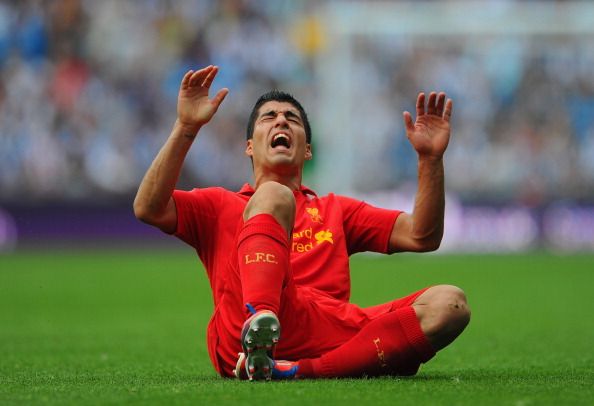
Let's kick Diving out of football
“Diving was not as prevalent in the game back in the 1990′s, but it is different now. The pace of the players has increased, every game now seems ‘massive,’ and we analyze every kick from a thousand different camera angles.”
Diving is quite easily the biggest issue in world football now. The players seem increasingly vulnerable to feather light touches, wind patterns and gravity. There are few moments in world football that annoys more than a player simulating and getting the decision. With the sudden body spasm and a painful expression followed by the rolling on the floor, diving is in every way an art – a dark art.

Over the past decade, diving in football has increased and has done so despite the fact that with infinite cameras and advanced technology, it’s impossible not to recognize a dive. But why do they still do it?
The answer is simple.
Reward is greater than the risk. With the amount of money flowing into the game and the switch in ideals to win at all cost, players are willing to take risks that they wouldn’t have taken over a decade ago. If successful in his efforts, the player earns his team a penalty or a free kick and a possible red card to the opposition while a failure means a yellow card and no further actions.
Hypocrisy of managers.
While this point is a little more complicated, there is no doubt about its relevance. With managers, so successfully able to see a dive from the opposition players and unable to see one from his own players without further analysis with a replay despite having , arguably, similar views of both incidents, sheds a bad light on the managers.
The blatant and shameful dive by Dani Alves against Real Madrid in an El Classico, who had to be stretchered off only to return without any damage a few minutes after the Real Madrid player was sent off, shows the extend the players are willing to go. While he was universally slammed for his actions, Guardiola wasn’t interested in talking about it. The same could be told about Didier Drogba, Gareth Bale, Luis Suarez (with Rodgers going so far as talking about the free kicks that weren’t given instead of the dives) and many others who are all untouchables in their respective clubs despite their actions.
Diving further causes problems to the referees, who already have enough problems on their plate without extra helpings from players simulating. Diving also effects the credibility of the players, with referees deeming fouls as dives based on their reputation.
So it comes down to how can we control, if not stop, diving in football?
UEFA has gone forward with the additional referees in the penalty box. While the effectiveness of this can be argued, it is by all means a step forward to prevent diving within the box. With the added danger of being spotted as a dive, players are sure to think twice before diving.
Video evidence, similar to the one used in cricket and tennis, is yet another suggestion. Unlike cricket and tennis, football is a sport in which momentum and continuity plays a big part. Stopping play for video evidence ruins the flow and remains a highly unlikely decision. But retrospective video evidence and proper punishment to the payers for simulation is a very interesting and probably effective technique. The football associations, taking matters into their own hand and sentencing proper punishment, is by far the most likely and effective technique and the fact that they continue to tread lightly around the issue is a crime in its own right.
The last and most desirable solution would be players and managers deciding to bring an end to simulation. I say desirable but highly unlikely. With every match being so important in the modern game, winning at all cost is the top priority.
There is little doubt that diving is ruining the game and decreasing the reputation of the sport. Diving is, after all the cancer in football and it must be cured sooner rather than later.